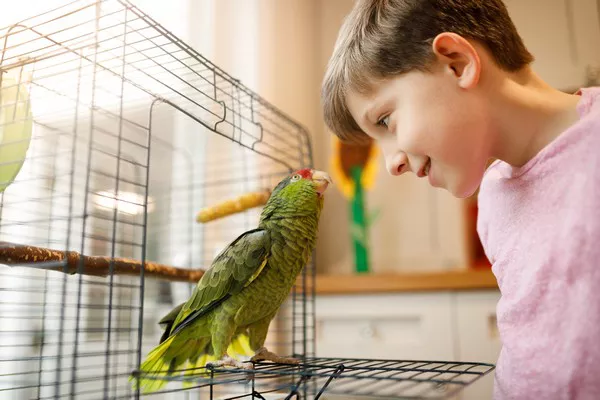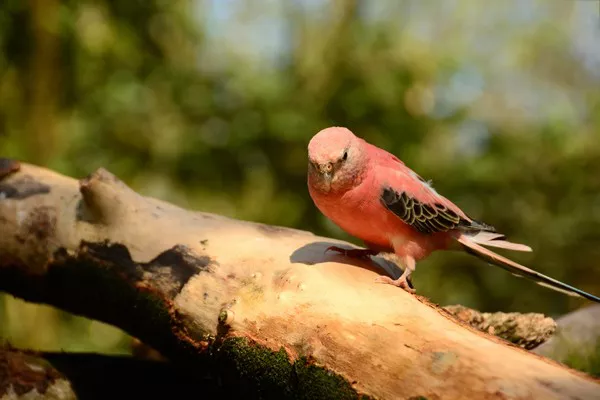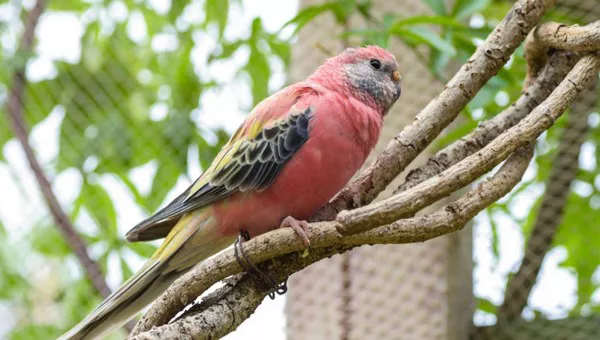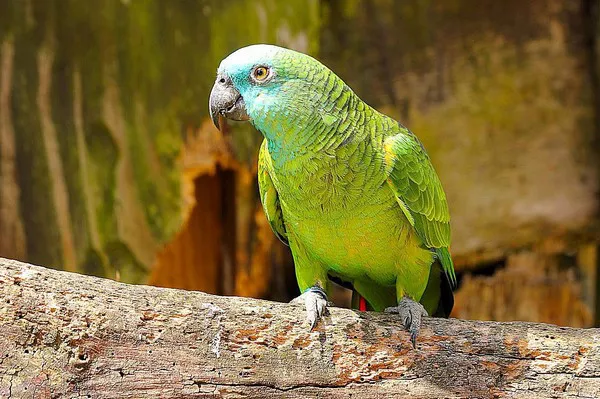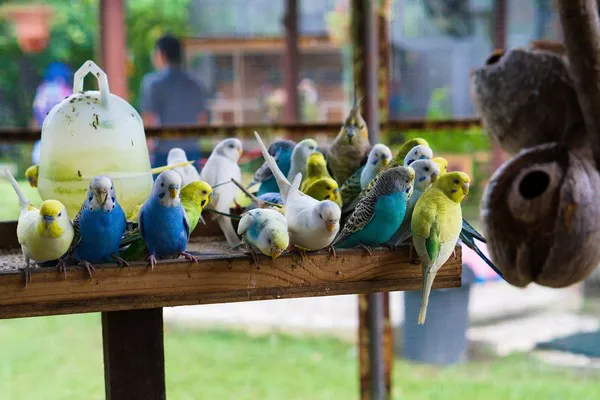Sun conures, known for their bright yellow, orange, and green plumage, are one of the most beloved pet bird species worldwide. These small, lively parrots, scientifically known as Aratinga solstitialis, are often adored for their playful personalities, vocalizations, and ability to bond deeply with their human companions. As with all pet birds, proper nutrition is crucial to their health and well-being. One of the common questions among Sun Conure owners is whether certain fruits, particularly cherries, are safe to feed to their feathered friends. In this article, we will explore whether cherries are a suitable food option for Sun Conures, the potential health benefits and risks of feeding cherries to them, and how to incorporate fruits into their diet safely.
The Importance of a Balanced Diet for Sun Conures
Before delving into cherries specifically, it is essential to understand the nutritional needs of Sun Conures. Like other parrots, Sun Conures are omnivores and require a varied diet that includes:
Pellets: The foundation of their diet, providing balanced nutrition.
Fresh fruits: Rich in vitamins, minerals, and antioxidants.
Vegetables: Important sources of fiber, vitamins, and essential minerals.
Nuts and seeds: A source of healthy fats and protein.
Grains: Whole grains like quinoa, oats, and brown rice can be part of their diet.
Sun Conures have a high metabolism, which means they require a diverse and nutrient-dense diet. A balanced diet is key to ensuring they have the energy and nutrients needed for optimal health, vibrant plumage, and a strong immune system.
Nutritional Benefits of Cherries for Sun Conures
Cherries, whether sweet or tart, are nutrient-rich fruits that offer a variety of health benefits. Let’s examine the nutritional components of cherries and how they might benefit your Sun Conure:
Vitamins: Cherries are an excellent source of vitamin C, which plays a crucial role in supporting the immune system. They also provide small amounts of vitamin A, important for vision, skin health, and maintaining the integrity of mucous membranes.
Antioxidants: Cherries are packed with antioxidants, including anthocyanins, which give cherries their red color. These antioxidants help reduce oxidative stress and inflammation in the body, promoting overall health. For birds, antioxidants support cellular health and contribute to a strong immune system.
Fiber: Cherries are a good source of dietary fiber. Fiber is important for proper digestion and helps maintain a healthy gut, which is essential for birds like Sun Conures. A healthy digestive system supports the absorption of nutrients and contributes to the bird’s general well-being.
Potassium: Potassium is an essential mineral that supports heart health, muscle function, and fluid balance. Cherries contain a moderate amount of potassium, which can be beneficial for your Sun Conure’s overall health.
Low in Fat: Cherries are naturally low in fat, making them a healthy, low-calorie snack option for your Sun Conure.
Are Cherries Safe for Sun Conures?
Although cherries offer various health benefits, there are some important considerations when feeding them to your Sun Conure. While cherries are generally safe for birds, certain parts of the fruit—particularly the pits—can pose a danger.
The Danger of Cherry Pits
The primary concern with cherries is the presence of pits or seeds inside the fruit. Cherry pits contain cyanogenic compounds (amygdalin), which, when metabolized, can release cyanide—a highly toxic substance. Cyanide poisoning can cause symptoms such as vomiting, diarrhea, difficulty breathing, and even death in extreme cases.
While a single cherry pit is unlikely to cause serious harm if ingested, regular consumption or ingestion of multiple pits could lead to poisoning. Therefore, it is crucial to remove the pit before offering cherries to your Sun Conure.
Additionally, the pit’s hard texture poses a choking hazard, and birds may struggle to digest it if they do manage to swallow it. This can lead to digestive blockages, which can be dangerous and require veterinary intervention.
Should You Feed the Skin and Flesh?
The fleshy part of the cherry is safe for Sun Conures to consume in moderation, provided the pit is removed. In fact, the skin of cherries contains beneficial nutrients like antioxidants and fiber. However, if you plan to feed cherries to your Sun Conure, make sure to wash the fruit thoroughly to remove any pesticides, chemicals, or other contaminants. This is especially important if the cherries are conventionally grown and not organic.
Moderation Is Key
Like any fruit, cherries should be fed to Sun Conures in moderation. Although they are nutritious, cherries are also high in sugar, and excessive sugar intake can lead to obesity and other health problems for pet birds. Offering too many sugary fruits can also upset the balance of your Sun Conure’s diet, leading to deficiencies in other essential nutrients.
A good rule of thumb is to offer cherries as an occasional treat, not a daily snack. In fact, variety is essential when it comes to feeding fruits to your Sun Conure. You should aim to offer a wide array of fruits, vegetables, and other healthy foods to ensure a balanced diet.
How to Safely Feed Cherries to Your Sun Conure
If you decide to feed cherries to your Sun Conure, follow these safety guidelines to ensure they can enjoy this treat without any health risks:
Remove the Pit: Always remove the pit from the cherry before offering it to your Sun Conure. You can cut the cherry in half or carefully pit it with a pitting tool. This will eliminate the risk of cyanide poisoning and prevent choking.
Wash the Cherries: Rinse the cherries thoroughly to remove any pesticides or chemicals. If possible, choose organic cherries to minimize exposure to harmful substances.
Feed in Moderation: Offer cherries as an occasional treat rather than a daily snack. Sun Conures should receive a balanced diet with a variety of fruits and vegetables, so make sure cherries are not the only fruit they receive.
Monitor for Allergies or Sensitivities: Some birds may have sensitivities to certain fruits, and cherries are no exception. When introducing cherries to your Sun Conure’s diet, start with a small amount and observe for any signs of allergic reactions, such as vomiting, diarrhea, or changes in behavior.
Cut into Small Pieces: Birds like Sun Conures have small beaks and may struggle to eat large pieces of fruit. Cutting cherries into small, manageable pieces will make it easier for your bird to eat and digest.
Avoid Dried Cherries: While fresh cherries are safe in moderation, dried cherries should be avoided. Dried fruit is often high in sugar and preservatives, which can be harmful to birds. Stick to fresh cherries whenever possible.
Other Fruits That Are Safe for Sun Conures
While cherries are a delicious and nutritious fruit for Sun Conures, they should be offered in moderation. Fortunately, there are many other fruits that are safe and beneficial for these feathered friends. Here are some other bird-safe fruits you can offer to your Sun Conure:
Apples: Remove the seeds, as they contain cyanide. Apples are a good source of fiber and vitamin C.
Grapes: Rich in antioxidants, grapes can be offered to Sun Conures, but be sure to cut them into small pieces to avoid choking.
Bananas: High in potassium and a favorite of many parrots. Bananas should be fed in moderation due to their high sugar content.
Berries: Blueberries, raspberries, and strawberries are great sources of antioxidants and vitamin C. They’re small and easy for Sun Conures to handle.
Pears: Like apples, pears should have their seeds removed. Pears are a good source of dietary fiber.
Papaya: Full of vitamins A and C, papaya is excellent for digestion. Make sure to remove the seeds before feeding it to your bird.
Mango: Rich in vitamins and antioxidants, mango is a tasty tropical fruit that your Sun Conure may enjoy.
Potential Health Risks of Overfeeding Fruit
While fruits like cherries can be a healthy addition to your Sun Conure’s diet, they should be offered in moderation. Excessive consumption of fruits can lead to a variety of health problems, including:
Obesity: Many fruits are high in natural sugars, which can contribute to weight gain if fed in excess. Obesity in birds can lead to numerous health issues, including joint problems and reduced life expectancy.
Diabetes: Just like in humans, excessive sugar intake in birds can increase the risk of developing diabetes. It is essential to provide a balanced diet with limited sugary foods.
Imbalanced Diet: Offering too much fruit and neglecting other important food groups—like vegetables, pellets, and grains—can lead to nutritional imbalances. Birds need a wide range of nutrients for overall health, so a varied diet is key.
Conclusion
In conclusion, cherries can be a healthy and enjoyable treat for your Sun Conure, provided they are prepared and fed in moderation. Cherries are rich in antioxidants, fiber, and vitamins, which can contribute to your bird’s overall health. However, always ensure that the pit is removed to avoid the risk of cyanide poisoning or choking hazards. Offering cherries occasionally as part of a varied and balanced diet can provide your Sun Conure with the nutrients they need while keeping them entertained and happy.
As with any treat, moderation is key, and you should always observe your bird for any signs of allergies or sensitivities when introducing new foods. By following proper feeding guidelines and offering a diverse range of fruits and vegetables, you can ensure that your Sun Conure remains healthy, happy, and well-nourished for years to come.
Related Topics:

